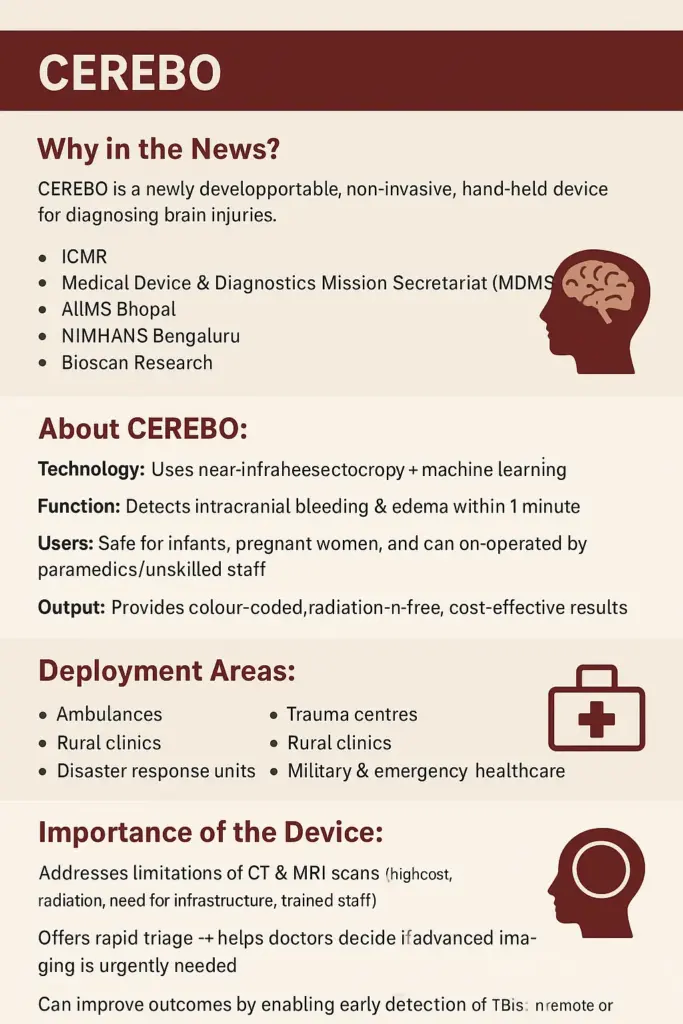September 2, 2025
CEREBO
Why in the News?
CEREBO is a newly developed portable, non-invasive, hand-held device for diagnosing brain injuries, created through a collaborative effort between:
- ICMR
- Medical Device & Diagnostics Mission Secretariat (MDMS)
- AIIMS Bhopal
- NIMHANS Bengaluru
- Bioscan Research
- It has been clinically validated, received regulatory approvals, and recommended for wider adoption in India and globally.
About CEREBO:
- Technology: Uses near-infrared spectroscopy + machine learning.
- Function: Detects intracranial bleeding & edema within 1 minute.
- Users: Safe for infants, pregnant women, and can be operated by paramedics/unskilled staff.
- Output: Provides colour-coded, radiation-free, cost-effective results.
- Deployment Areas:
- Ambulances
- Trauma centres
- Rural clinics
- Disaster response units
- Military & emergency healthcare
Importance of the Device:
- Addresses limitations of CT & MRI scans (high cost, radiation, need for infrastructure, trained staff).
- Offers rapid triage → helps doctors decide if advanced imaging is urgently needed.
- Can improve outcomes by enabling early detection of TBIs in remote or resource-poor settings.
- Reduces diagnostic errors common in Glasgow Coma Scale (GCS)-based assessments.
- Health Technology Assessments suggest:
- Speeds up CT scans in tertiary care.
- Optimises triage.
- Cuts imaging costs.
About Traumatic Brain Injury (TBI):
- Definition: Sudden trauma/injury to the head disrupting normal brain function.
- Severity:
- Mild (concussion) → observation needed.
- Severe → can cause long-term disability or death.
- Causes in India (Epidemiology data):
- Road traffic accidents → ~60%
- Falls → 20–25%
- Violence/assaults → ~10%
- Public Health Burden in India:
- ~1.5–2 million TBIs annually.
- ~1 million deaths per year.
- Major cause of morbidity, disability, and socio-economic losses.
- Complications: Intracranial bleeding, brain swelling, long-term physical, cognitive, and emotional impairments.
Daily Gist of The Hindu/Indian Express: 6 Oct 2025
October 6, 2025
Daily Gist of Article /The Hindu /Indian Express: 24 Sep 2025
September 24, 2025
Gist of Daily News Papers Articles/The Hindu /Indian Express-23 Sep 2025
September 23, 2025
Daily Article Gist/The Hindu/22 Sep 2025
September 22, 2025

